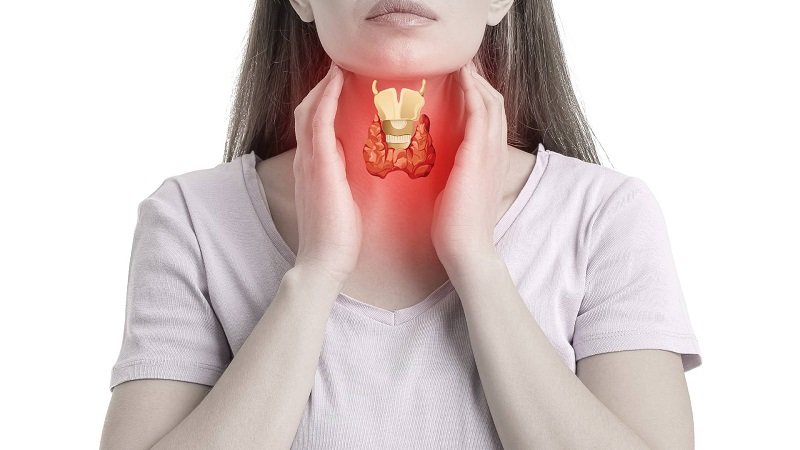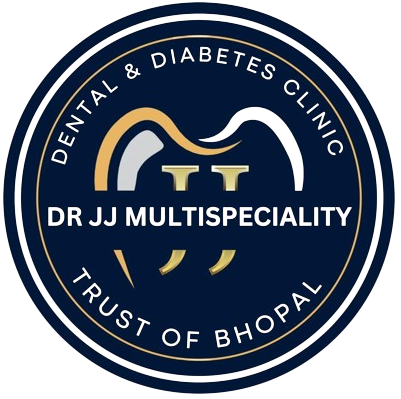Best Thyroid specialist in Bhopal - Dr jambu jain
Top thyroid specialist in Bhopal, Dr. Jambu Jain, if you’re searching for a top thyroid doctor in the region, look no further. Dr. Jambu Jain is widely recognized as one of the leading thyroid specialists in Bhopal. He was awarded the Best Endocrinologist award in 2022 for his outstanding contributions to the field, particularly in thyroid, obesity, diabetes, bone, metabolic, and other hormonal disorders.
With over 18 years of experience, Dr. Jambu Jain has treated more than 11,000 patients with various thyroid and hormonal disorders from over 40 countries. He is highly skilled in reversing thyroid diseases such as Hashimoto’s Thyroiditis using LDN therapy.
Dr. Jambu Jain is esteemed for his expertise in treating a range of thyroid-related conditions, including:

- Hypothyroidism
- Hyperthyroidism
- Hashimoto's Thyroiditis (autoimmune thyroid) reversal with LDN therapy
- Subacute Thyroiditis
- Multinodular Goitre
The thyroid, a small butterfly-shaped gland in the front of the neck, plays a crucial role in controlling body metabolism. An underactive thyroid leads to hypothyroidism, while an overactive thyroid causes hyperthyroidism. Imbalances in thyroid hormone production can result in weight gain, obesity, palpitations, infertility, acne, hair loss, insomnia, memory loss, and bone diseases like osteoporosis. For comprehensive and expert care, Dr. Jambu Jain is among the best thyroid specialists in Bhopal.
Dr. Jambu Jain Clinic is one of the most affordable options in Bhopal for treating thyroid disorders under the care of a certified thyroid expert. Conveniently located on JK Road near Kolar Road in Mandakini Colony, Bhopal, our clinic offers effective solutions for thyroid and related problems in a single visit, eliminating the need for expensive thyroid hospitals.
We provide superior care and thyroid reversal treatments at reasonable rates. Our clinic is equipped with an advanced diagnostic lab and certified paramedical staff. To book an appointment, click the link below or contact us via call, SMS, or WhatsApp at 8889057222.
HYPOTHYROIDISM
Hypothyroidism is one of the most common hormonal disorders today, particularly prevalent among females.
According to Dr. Jambu Jain, a renowned thyroid specialist in Bhopal, most cases of hypothyroidism result from an autoimmune reaction known as Hashimoto's disease. This condition is related to issues like female infertility, obesity, diabetes, and PCOS
HASHIMOTO'S THYROIDITIS
Hashimoto's Thyroiditis is an autoimmune condition where antibodies target the thyroid gland, causing damage and impairing its normal function. Dr. Jambu Jain, one of the top thyroid doctors in Bhopal, has over 15 years of experience treating autoimmune thyroid disorders and reversing them through LDN therapy.
LDN THERAPY
Dr. Jambu Jain, a highly awarded endocrinologist and thyroid specialist in Bhopal, recommends and utilizes LDN (low dose naltrexone) therapy for reversing autoimmune conditions such as Hashimoto's Thyroiditis.
REVERSE THYROID
Now you can reverse your thyroid disease in just 3 to 6 months with three simple steps: diet, yoga, and LDN therapy, all under the guidance of Dr. Jambu Jain, the best thyroid doctor in Bhopal. This proven and effective treatment costs less than a cup of tea per day.
Frequently Asked Questions
The thyroid gland is a crucial organ in terms of size, location, and function. Situated in the neck just below the larynx, It has two parts connected by a bridge in the middle. When the pituitary gland sends a signal, the thyroid gland makes hormones like thyroxine (T4) and triiodothyronine (T3). These thyroid hormones are vital for regulating growth, development, and metabolic functions in the body. These hormones control how the body grows, develops, and uses energy. Problems with the thyroid can affect things like trouble getting pregnant, being very overweight, diabetes.
Consider booking an appointment with a thyroid specialist if you experience any of the following conditions:
- Hypothyroidism: This condition occurs when the thyroid hormone synthesis is insufficient, more commonly affecting females. Symptoms can include fatigue, lack of focus, constipation, dry skin, depression, and other thyroid-related issues. Causes may include Hashimoto’s thyroiditis, thyroid hormone resistance, and acute thyroiditis.
- Hyperthyroidism: This condition results from excessive thyroid hormone production. Symptoms include nervousness, tremors, weight loss, an elevated heart rate, and heat intolerance. Causes can include Graves’ disease, multinodular goitre, and high iodine consumption.
- Goitre: An enlargement of the thyroid gland.
- Thyroid Nodules: These are nodules, lumps, or abnormal masses in the thyroid gland.
- Thyroid Cancer: Various forms of thyroid cancer exist, each with different prognoses and treatment options. The survival rate is high, especially when the disease is detected early by a thyroid specialist.
Thyroid specialists diagnose various thyroid problems through the following tests:
- Blood Tests for Thyroid: TSH, T3, and T4 levels are typically measured with a blood test. Comparing these results with the normal range helps identify primary thyroid disorders. If you exhibit thyroid symptoms but have normal TSH levels, your thyroid specialist may suggest additional tests for free T3 (FT3) and free T4 (FT4). Thyroid antibody tests, such as thyroid peroxidase autoantibody (TPO Ab) and thyroglobulin autoantibody (TG Ab), can help distinguish between benign thyroid conditions and thyroid cancer or Hashimoto’s thyroiditis.
- Ultrasound (USG): This test measures the thyroid gland from different angles to look for nodules, cysts, or calcifications. The gland is examined in various states such as normal, hypo-, or hyperechoic.
- Imaging Scans: CT and MRI scans are used to detect abnormalities that are not visible through blood tests. These scans are useful even if you do not have thyroid problems.
- Thyroid Nuclear Scans: A Radioiodine Scan helps detect thyroid cancer and differentiate between benign and malignant lesions. This test uses radioactive iodine to assess thyroid function.
- FNAC or Biopsy: Fine-needle aspiration is performed to obtain a tissue sample for lab examination to check for malignant cells. This test is recommended if scans indicate a problem with the thyroid gland.
- Cytology: This involves studying the cells from the fluid collected during a biopsy to further investigate the thyroid condition.
- Thyroid Medications: These medications, which aim to balance thyroid hormone levels, are taken orally in pill form. A thyroid doctor may prescribe them to manage hypothyroidism, hyperthyroidism, and thyroiditis, aiding the thyroid in its function.
- Radioactive Iodine Therapy: This treatment is typically reserved for cases of hyperthyroidism that do not respond to other treatments. It may also be considered for thyroid cancer.
- Thyroid Surgery: In instances of severe hyperthyroidism, thyroid surgery may be recommended. A thyroidectomy involves the removal of excess thyroid tissue, which can help restore normal thyroid function. Conditions such as Graves’ disease may be treated with partial or total thyroidectomy.
Low-dose naltrexone (LDN) is a medication utilized in the treatment of autoimmune thyroiditis, a condition characterized by the immune system’s attack on the thyroid gland. LDN works by suppressing the production of antibodies and T cells that target the thyroid gland, thus mitigating or halting its destruction. Numerous patients experience symptom improvement with LDN therapy.
